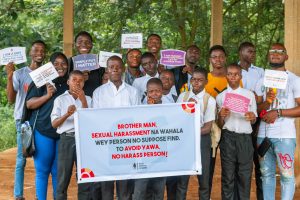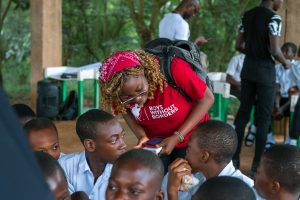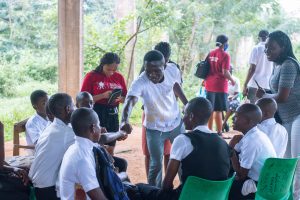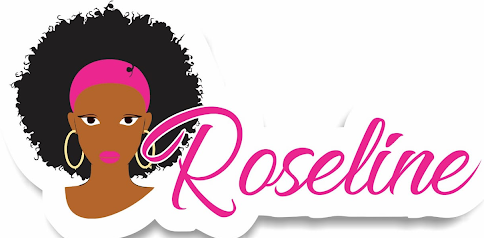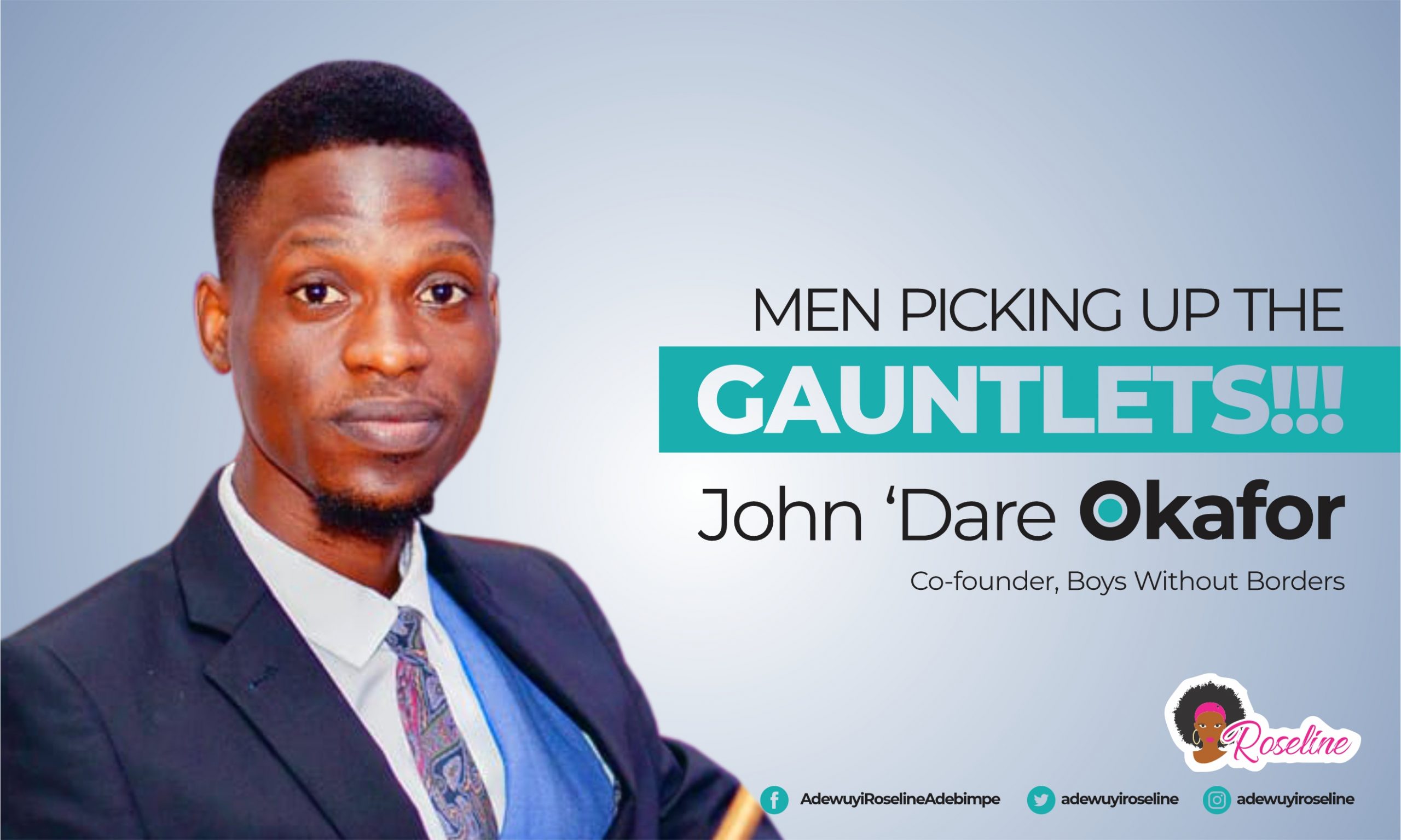There is this current trend about alpha males. An alpha male is a man who is seen as the standard of what masculinity should be, especially by younger or other men. They usually seem or act better than other men. Alpha males tend to have money, confidence, and ladies flocking around them. They seem to be living every young man’s dream. Sadly, most times, the traits portrayed by these alpha males are toxic yet people celebrate them because of their confidence and their net worth. This shows that there is a lot of work to be done. Boys need positive role models they can look up to and learn from. This is important as a man knows best how to educate a boy on how to be a man. That is why I am shedding the light on John ‘Dare Okafor, the Co-founder of Boys Without Borders who is showing boys a better way. He has been running this project and has seen some success. We interviewed him to discuss how things have been and what inspires him to keep moving forward. Grab a glass of cold drink, sit back, and enjoy the chat.
1. Can we meet you, please?
My name is John ‘Dare Okafor, I’m the Co-founder/Managing Director of Boys Without Borders, a non-governmental organization that champions advocacy, orientation, and sensitization of the boy-child. Over a year and a half, I have been leading a relentless team of over fifty volunteers on various innovative programs geared towards advancing the cause of the boy-child. I am currently a final year student at the University of Ibadan, undergoing a course in Counselling and Human Developmental Studies.
2. What drove you to launch a boy child advocacy organization in a world where males rarely organize programs for boys or men, but we hear concerns that women do a lot of girls?
I didn’t begin championing the cause of the boy-child alone. My good friend, Solomon Idowu, who happens to be the Co-founder/ Campus-Director – BWB UI, prompted me sometime in May 2020. It was during the Covid-19 pandemic, which was also the period Vera Uwaila Omozuwa, a 22-year-old microbiology student in Benin City was raped and killed. It sparked an outrage across Nigeria which led to demand for #JusticeforUwa which trended on social media in Nigeria for weeks. Individuals and institutions, majorly through social media, pointed to the boy-child as the major perpetrators of rape and other crimes in society but none proffering any form of solution. Earlier that year, in January, Solomon and I had this conversation revolving around the boy-child and how his needs have been neglected by the society. It was during the period of this outrage that Solomon gave me a call, saying he felt this was the right time to act on what was previously discussed. This gave birth to Boys Without Borders.
3. How has the reception been so far over the years from the boys you have impacted?
The reception has been amazing! We go to schools to speak to only boys, and you find these boys enthralled by the possibility of their needs being paid attention to. We find them curious about a lot of things that relate to masculinity; these are questions that they won’t normally ask the men around them. We go on community outreaches, and we find parents asking questions as well, wanting to know more on how they can support their boy-child. These among many others have only inspired us further to do more for the boy-child, regardless of the limitations we encounter.
4. Who are your role models in this field?
We started off with no role models to follow. As we grew, we got into contact with Solomon Ayodele, the founder of Boys Quarter Africa. Personally from him and his organization, we have been able to draw more inspiration for this cause.
5. What are the thematic areas for the programs you organize?
We have been able has to create a standardized material – with salient boy-child themes – primarily to help teach, orientate and sensitize the boy-child in secondary schools. We have plans to create another material for boys in primary schools and for men generally. These themes range from: Gender issues, sex education for the boy-child, drug abuse and addiction, personal hygiene, dealing with peer pressure, character building, and social and psychological issues.
6. Have you attended other programs before on this before you launched yours? If yes, which programs?
No, we didn’t.
7. What do you hope to achieve with these programs?
We hope these programs would attend to the neglected needs of the boy-child and also bring society to the consciousness of the plight of the boy-child and the reasons it must be catered for.
8. What is your advice to other men who also want to venture into boy child advocacy but do not know how to?
Do it for the right reasons. Don’t go into advocacy for the boy-child as another form of business venture – it should be towards the advancement of humanity. Seek knowledge where required, because there is still so much to know. Like Solomon Ayodele advised us some months back, see it as a marathon and not a hundred-meter dash.
9. What is your call to action sentence so that more men will start doing things for boys?
Strategic actions towards the boy-child are our responsibility, failure to do this is equivalent to running in circles. It is time we realize that we need functional men and women for a balanced society. We should do more to bring a balance to that unbalanced scale, which for decades has been overweighed.
10. Where do you see boy child advocacy in the next 5 years?
In the next five years, boy-child advocacy would have covered more grounds reaching out to the boy-child, and might also have an impact in policy formations that affects the boy-child.
I trust it has been an enlightening chat with John ‘Dare Okafor, the Co-founder of Boys Without Borders. Key takeaways from his experience and advice are that strategic actions towards the boy-child are our responsibility. He is calling us to put hands together and do something about the change we want to see. Men and women alike need to put heads together to stop complaining and start advocating. Will you pick up the gauntlet today?
To learn more about Boys Without Borders, support their mission, or contact John, you can reach out on any of the following handles:
Boys Without Borders Website: www.boyswithoutbordersng.com
Personal Social Media Platforms:
Facebook: https://www.facebook.com/okafor.john.146
Twitter: https://twitter.com/DareyOkafor?t=5rHaFZiF9SCn9tMAOH8MBA&s=09
Instagram: https://www.instagram.com/dareyokafor/p/CYqXJHaIlyF/?utm_medium=copy_link
LinkedIn: https://www.linkedin.com/in/john-dare-okafor-35055618a


